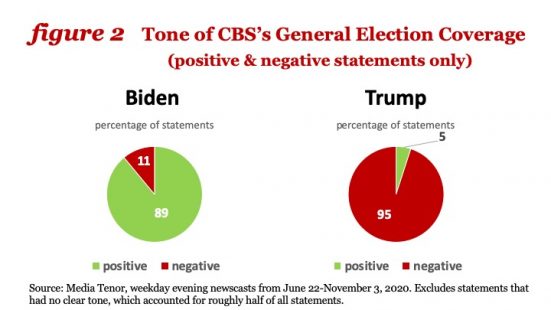The Communication Gap: A Look at Presidential Promises and Reality

In the 2012 presidential election, Moon Jae-in famously declared, "If I become president, I will move the presidential office to Gwanghwamun." His rationale was centered on the idea of 'communication.' He envisioned stepping out of the 'palatial' Blue House to engage directly with the public, suggesting that citizens might even encounter the president on their daily commutes. After losing to Park Geun-hye that year, Moon reiterated this promise five years later, stating, "Imagine the president commuting to Gwanghwamun and stopping by Namdaemun Market for a drink with citizens to discuss the world and current affairs. I will be that kind of president."
However, such direct communication proved impractical. Given the ongoing division of the Korean Peninsula, the reality of Moon's vision was starkly highlighted when he visited Daegu's Chilseong Market, where security personnel were seen wielding machine guns, underscoring the challenges of achieving genuine interaction.
There’s no need to lament the inability to engage directly with the public; communication can still occur through aides, cabinet members, and the press. Yet, the issue with the Blue House is that this form of communication is often hindered. The president's office and the secretariat are located a significant 500 meters apart, making spontaneous visits unlikely unless absolutely necessary, thus creating a 'communication barrier.' Moon himself noted that Park Geun-hye's impeachment stemmed from her isolation in the Blue House, where she only interacted with close aides like Choi Soon-sil, leading to a disconnect with the public.
Despite this, Moon completed his term while remaining at the Blue House. Why did he fail to fulfill his promise? While security concerns and political schedules could serve as excuses, the deeper issue lies in the Blue House's insular nature. Before becoming president, Moon championed the idea of a communicative leader, but once in office, he found comfort in the very isolation he criticized.
In November 2021, it was revealed that Moon's daughter, Da-hye, had returned from Thailand and lived in the Blue House residence for nearly a year without public knowledge. The Blue House defended this by stating, "What’s the problem with a daughter living with her father?" However, if they were truly transparent, why keep this a secret for so long? Furthermore, Da-hye had previously refused to disclose her assets, citing her independent livelihood, indicating an awareness of the inappropriateness of the situation.
Moon's legacy is not just about his promises but also about being remembered as a president who communicated even less than Park Geun-hye, whom he criticized. He claimed to engage actively through social media, despite the fact that when his posts on the division between doctors and nurses drew public backlash, the Blue House admitted they were written by an aide, suggesting a significant communication gap.
Former President Yoon Suk-yeol learned from Moon's failures, opting for a strategy of avoiding the Blue House altogether, recognizing its isolating nature. Interestingly, the Democratic Party's stance was perplexing. Despite Moon's campaign promise and their own aspirations, they consistently opposed the relocation of the presidential office, even threatening to withhold funding.
Despite these obstacles, Yoon successfully moved the presidential office, resulting in closer proximity between the office and the secretariat, fostering more frequent interactions. The establishment of 'doorstepping'—informal Q&A sessions with reporters during his commute—was a significant step towards a more communicative presidency. Over the past three years, 8 million citizens visited the Blue House, marking a positive shift. Had this trend continued, Yoon could have been seen as a successful president.
However, Yoon's presidency took a downturn after the MBC-triggered 'Biden-Nalimeun' controversy led to the suspension of doorstepping. This was followed by conflicts with Han Dong-hoon and a loss in the general elections, compounded by the Democratic Party's obstruction in the National Assembly. Ultimately, Yoon declared a state of emergency, which proved detrimental to his administration, leading to a return of power to the Democratic Party.
President Lee Jae-myung has announced plans to return to the Blue House in August, a move that many anticipated. Lee has cultivated an image of being distant from communication, appearing to have a dislike for the press. During his time as the Democratic Party leader, he often avoided answering questions from reporters, leading to the nickname 'Ellipsis Representative' due to the frequent use of '...' in news captions.
In 2018, after winning the Gyeonggi Province governorship, he abruptly ended an interview, calling it "rude" and "cutting off" the conversation, a move that might have led to accusations of media suppression had he been a conservative politician.
Lee's communication issues extend beyond this. His predecessor, Nam Kyung-pil, opened his official residence to the public, transforming it into a guesthouse and gallery while commuting from his home. In contrast, Lee reclaimed the residence for personal use in January 2019, leading to controversies, including allegations against his wife, Kim Hye-kyung, for misusing government funds. Lee himself faces charges for using public funds for personal expenses during his governorship. Until the whistleblower's revelations, few were aware of these issues, largely due to the residence's secrecy. Now, as Lee prepares to return to the Blue House, concerns about his future and communication style are inevitable. What does this choice hold for him?
What do you think?
0 reactions





